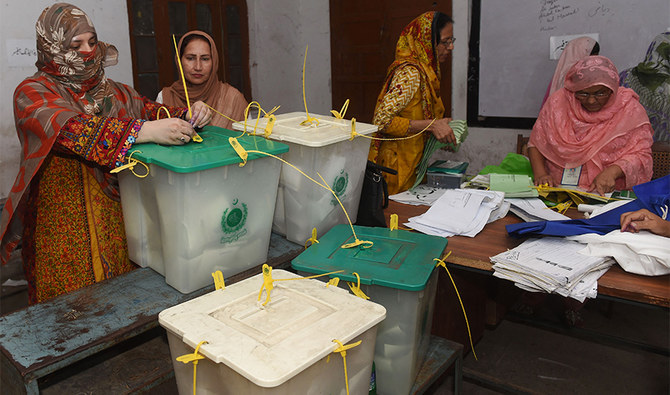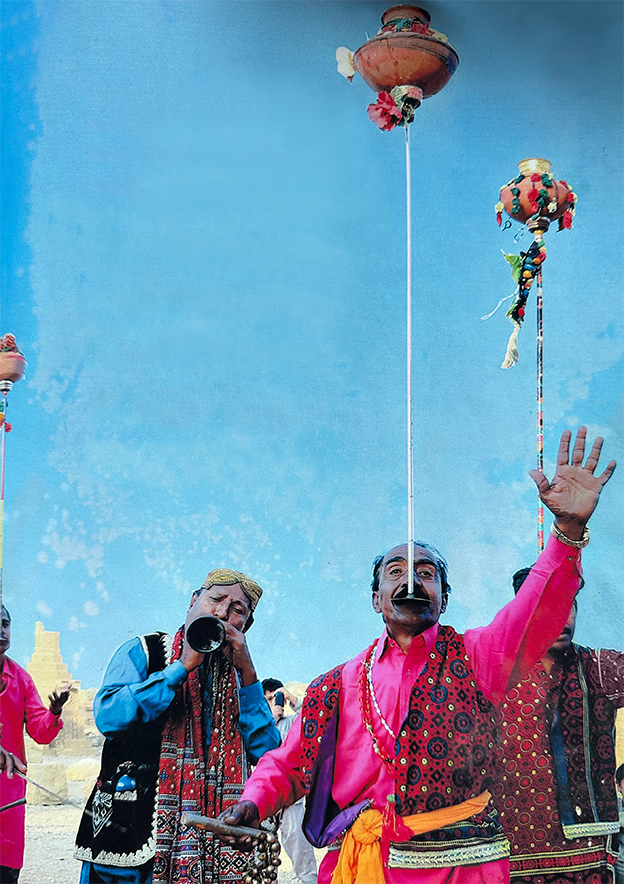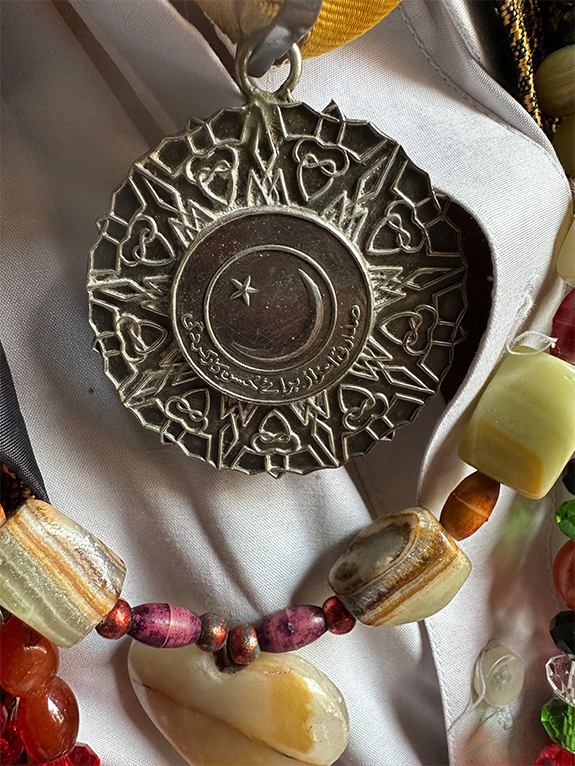ISLAMABAD: By-elections for 20 high-stakes Punjab Assembly seats have dominated Pakistan’s political landscape as two major parties, the ruling Pakistan Muslim League-Nawaz (PML-N) and the opposition Pakistan Tehreek-e-Insaf (PTI), have been vying for the maximum number of seats that will also determine the fate of Punjab Chief Minister Hamza Shehbaz.
Shehbaz won the slot in an April election with the support of 25 dissident PTI lawmakers, but the election commission later disqualified the dissidents and announced fresh polls on 20 general seats as five of them were elected on reserved seats for women and religious minorities. Of these 20 dissidents, ten won the 2018 general elections as independent candidates and later joined the PTI for the party to form the government in Punjab.
The by-polls, which are scheduled to be held on Sunday, are also seen as a popularity test for the ruling PML-N and the opposition PTI parties. Top leaders of both parties, including PTI chairman Imran Khan and PML-N vice president Maryam Nawaz, have addressed public gatherings in each of the 20 constituencies to mobilize the masses ahead of the polling day.
Political analysts expect a close contest among PTI and PML-N candidates in each constituency, though a large number of independents and candidates of other parties, including the Tehreek-e-Labbaik Pakistan (TLP), Jamat-e-Islami (JI), Jamiat Ulema-e-Islam Pakistan (JUI-P), Awami National Party (ANP) and Tehrik-e-Jawanan Pakistan (TJP), are also contesting the elections.
Habib Akram, a political analyst and a TV talk show host, said the results of the by-elections on 20 seats would be crucial as they would dictate the future of the Shehbaz government in Punjab.
“If we go by the public sentiment in each constituency, then the PTI should easily win 15 out of 20 seats,” Akram told Arab News. “People in these constituencies feel that this is a make-or-break moment for the country due to the PTI’s narrative of a ‘regime change conspiracy’.”
He said the Pakistan Democratic Movement (PDM), a coalition of nine parties that overthrew the Khan government in the center through a no-trust vote in April, had failed to deliver on its promises.
“The PDM’s narrative of inflation stood defeated badly just within weeks of their government when they raised fuel and electricity prices to a record level,” Akram said. “People are now buying the narrative of PTI across the Punjab province.”
Ahmed Bilal Mehboob, president of the Pakistan Institute of Legislative Development and Transparency (PILDAT), said the result of the by-elections would also impact the federal government, therefore, both parties put in their best to win the maximum number of seats.
“This election will also determine if the PTI’s narrative of foreign conspiracy has resonated with the public. The PML-N is blaming the PTI for poor governance and inflation during its tenure and trying to persuade the public in its favor,” he told Arab News.
“Apparently, the PTI has gained popularity in Punjab after its ouster from the government, but it is yet to be seen if this popularity would convert into votes on July 17.”
Here is a list of all 20 constituencies and the candidates who won the 2018 general elections from there:
PP-7 Rawalpindi
Raja Sagheer Ahmed won the seat as an independent candidate in 2018 and later joined the PTI. Six candidates are currently contesting the election in this constituency, including two independents.
The main contest is expected between PTI’s Mohammad Shabbir Awan and Raja Sagheer Ahmed of PML-N. Other candidates include JI’s Tanveer Ahmed, Mansoor Zahoor of TLP, Raja Waseem Ahmed and Nazakat Hussain.
PP-83 Khushab
Malik Ghulam Rasool Sangha won the seat as an independent candidate in 2018. A total of ten candidates are contesting the by-election in this constituency, including seven independents. PML-N has fielded Amir Haider Sangha, PTI has nominated Hassan Malik and TLP has named Zammurad Abbas Khan its candidate.
PP-90 Bhakkar
Saeed Akbar Khan won the PP-90 seat as an independent in 2018 and later joined the PTI. Nine candidates are currently vying for this seat, including four independents.
Khan has this time been nominated by PML-N, Abdur Rauf by JUI-P, Irfanullah Khan Niazi by PTI, Mohammad Amjad Jamil by TLP and Naveed Ahsan Niaz by JI.
PP-97 Faisalabad
The seat was won by Mohammad Ajmal as an independent candidate in 2018. He too later joined the PTI. A total of 12 candidates are currently running for the provincial assembly seat, including seven independents. They include Naveed Shafee of TLP, Mohammad Sohaib Aslam of Pakistan Nazriyati Party (PNP), Mohammad Ajmal of PML-N, Ali Afzal Sahi of PTI and Ali Ahmad of JI.
PP-125 Jhang
Faisal Hayat won the seat as an independent candidate in 2018. A total of ten candidates are now vying for this seat, including eight independents. The main contest in the constituency is expected between Hayat, who has been nominated by the PML-N, and PTI’s Mian Muhammad Azam.
PP-127 Jhang
Mehar Muhammad Aslam won the seat as an independent in 2018 and later joined the PTI. A total of ten candidates are contesting the election in this constituency, including seven independents. They are Mehar Muhammad Nawaz of PTI, PML-N’s Mehar Muhammad Aslam and Muhammad Usman of TLP.
PP-140 Sheikhupura
Mian Khalid Mehmood won the seat as a PTI candidate in 2018, but deserted his party in 2022 and voted for Hamza Shehbaz in the chief minister’s election.
A total of ten candidates are vying for this seat, including six independents. They include Javed Iqbal of TLP, Khurram Shahzad Virk of PTI, Muhammad Tauseef of JI and Mian Khalid Mehmood of PML-N.
PP-158 Lahore
Abdul Aleem Khan won the seat on PTI’s ticket in 2018. A total of 14 candidates are contesting the election in this constituency, including eight independents. They are Jamil-ur-Rehman of the PNP, Rana Ahsan of PML-N, Umair Awan of JI, Muhammad Bilal of TLP, Muhammad Zahid Khan of Awami National Party (ANP) and Mian Muhammad Akram Usman of PTI.
PP-167 Lahore
Nazir Ahmed Chohan won the seat as the PTI candidate in 2018. A total of 11 candidates are now contesting the election in this constituency, including six independents. They include Hasnain Ahmed Shahzad of TLP, Khalil Ahmed of JI, Shabbir Ahmed of PTI, Nazir Ahmed Chohan of PML-N and Wakif Tehmasab Kayani of TJP.
PP-168 Lahore
Malik Asad Ali won the 2018 election as the PTI candidate. Nine candidates are currently vying for this seat, including five independents. They are Amjad Hussain Abbasi of TLP, Usman Ghani of JI, Muhammad Nawaz Awan of PTI, and Malik Asad Ali of PML-N.
PP-170 Lahore
Muhammad Amin Zulqarnain won the seat as the PTI candidate in 2018. Eight candidates are currently contesting the election in this constituency, including four independents. They are Jamil Ahmed of TLP, Muhammad Amin Zulqarnain of PML-N, Malik Zaheer Abbas of PTI and Waqas Ahmad Butt of JI.
PP-202 Sahiwal
Malik Nauman Ahmad Langrial won the seat as the PTI candidate in 2018. Eight candidates are now contesting the by-election, including five independents. They include Umair Saleem of TLP, Muhammad Ghulam Sarwar of PTI and Malik Noman Ahmad Langrial of PML-N.
PP-217 Multan
Muhammad Salman won as an independent candidate in 2018. Four candidates are currently taking part in the by-election, including Zahid Hameed Gujjar of TLP, Sajid Ismail of JI, Mohammad Salman of PML-N and Makhdoom Zain Hussain Qureshi of PTI.
PP-224 Lodhran
Zawar Hussain Warraich won the seat as the PTI candidate in 2018. A total of ten candidates are running for the seat now, including six independents. They include Intizar Ahmad Attari of TLP, Hafiz Abdul Shakoor of JUI-P, Zawar Hussain Warraich of PML-N and Muhammad Amir Iqbal Shah of PTI.
PP-228 Lodhran
Nazir Ahmed Khan won the constituency as the PTI candidate in 2018. Six candidates are currently contesting the election, including Syed Arshad Ali Shah of TLP, Izzat Javaid Khan of PTI, Nazir Ahmed Khan of PML-N and three independents.
PP-237 Bahawalnagar
Fida Hussain won as an independent in 2018 and later joined the PTI. Six candidates are vying for the seat now, including Syed Aftab Raza of PTI, Sabir Manzoor Wattoo of Pakistan Tehreek-e-Insaf Nazriati (PTI-N), Fida Hussain of PML-N, Mian Rashid Mahmood Wattoo of TLP and two independents.
PP-272 Muzaffargarh
Syeda Zehra Basit Bukhari won the 2018 election as the PTI candidate. Nine candidates are currently contesting the election, including Muhammad Ibrahim of TLP, Syeda Zehra Basit Bukhari of PML-N, Mohammad Moazzam Ali Khan of PTI and six independents.
PP-273 Muzaffargarh
Muhammad Sibtain Raza won the seat as the PTI candidate in 2018. Six candidates are now contesting the election, including Muhammad Shafi Khan of TLP, Muhammad Sibtain Raza of PML-N, Munawar Hussain Bukhari of Pakistan Peoples Party (Shaheed Bhutto), Yasir Arafat Khan of PTI and two independents.
PP-282 Layyah
Muhammad Tahir won as an independent in 2018 and later joined the PTI. A total of ten candidates are taking part in the election, including Qaiser Abbas Khan of PTI, Muhammad Shahid Iqbal of TLP, Muhammad Tahir of PML-N, Muzammil Abbas of PPP (Shaheed Bhutto) and six independents.
PP-288 Dera Ghazi Khan
Mohsin Atta Khan Khosa won the seat as an independent in 2018 and later joined the PTI. Six candidates are now contesting the election, including Sardar Mohammad Saifuddin Khosa of PTI, Abdul Qadir Khan of PML-N, Irfanullah of TLP and three independents.




















